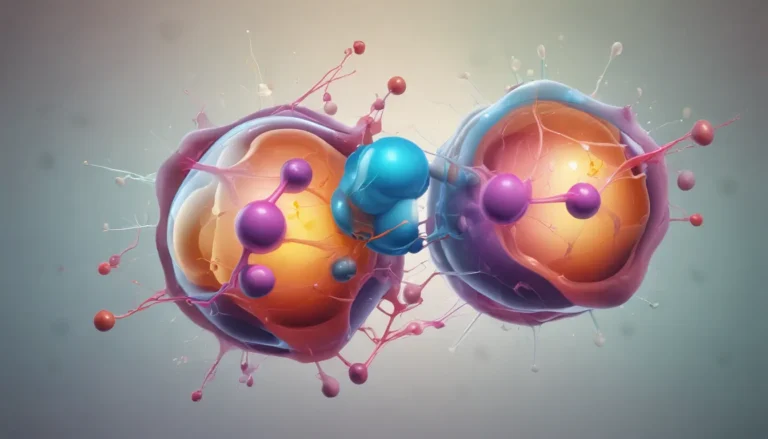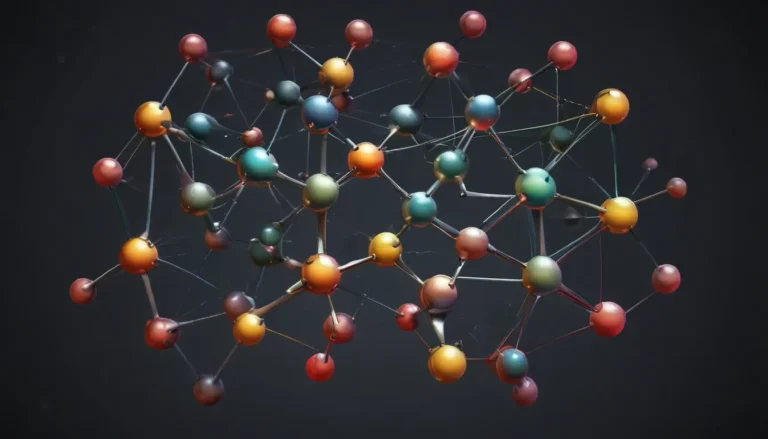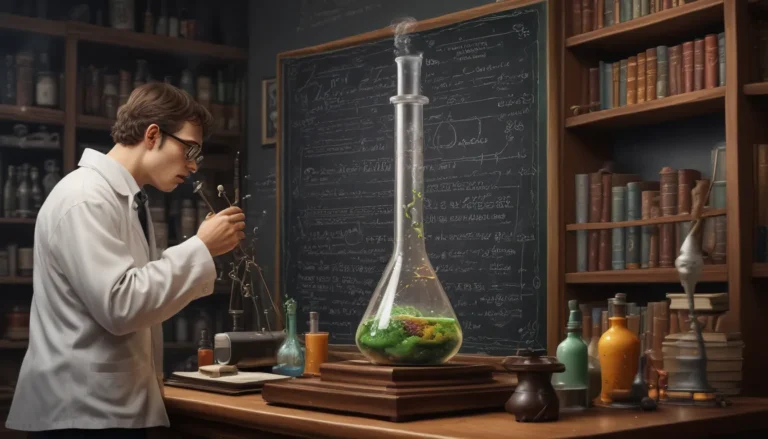A Note About Images: The images used in our articles are for illustration purposes only and may not exactly match the content. They are meant to engage readers, but the text should be relied upon for accurate information.
Polymerization is a captivating process that holds the key to unlocking a world of possibilities in chemistry. From creating everyday items like plastics and fabrics to groundbreaking advancements in pharmaceuticals and industrial manufacturing, polymerization plays a pivotal role in shaping our modern world.
Understanding Polymerization: A Chemical Marvel
Polymerization is a chemical reaction that brings together small molecules, called monomers, to form long chains known as polymers. This transformative process is catalyzed by various factors such as heat, pressure, or specific chemicals known as initiators.
Delving into the Mechanism: The Chain Reaction
The magic of polymerization lies in its chain reaction mechanism. Each polymer chain that forms triggers the initiation of another, resulting in a continuous growth of these molecular structures.
Exploring the Types of Polymerization
There are two primary types of polymerization: addition polymerization and condensation polymerization. Addition polymerization involves the seamless combination of monomers without generating any byproducts, whereas condensation polymerization leads to the production of small molecules like water during the polymerization process.
Unraveling Cross-Linking: Enhancing Polymer Properties
Cross-linking is a fascinating outcome of some polymerization processes. It results in the formation of interconnected polymer chains, significantly boosting the mechanical properties of the resulting polymer and making it more durable.
Diving into Industrial Applications
Polymerization finds widespread applications across various industries. From producing essential plastics like polyethylene and polypropylene to creating synthetic fibers like nylon and polyester, its impact is felt far and wide.
Shedding Light on Radical Polymerization
Radical polymerization serves as a common method for producing polymers. It operates through the initiation, propagation, and termination of free radicals, showcasing the intricate dance of molecules in creating these long chains.
Unveiling Step-Growth Polymerization
In contrast to addition polymerization, step-growth polymerization involves the reaction between functional groups present in monomers, paving the way for the formation of high molecular weight polymers.
Embracing Biopolymers: Nature’s Contribution
Nature itself engages in polymerization, creating biopolymers that are vital to life. Proteins, nucleic acids, and carbohydrates are prime examples of biopolymers essential for the existence of living organisms.
Fascinating Copolymerization Adventures
Copolymerization allows for the synthesis of polymers using two or more different monomers. This process gives rise to polymers with unique properties and characteristics, further expanding the possibilities in polymer chemistry.
Unveiling the Art of Living Polymerization
Living polymerization techniques provide precise control over the molecular weight and structure of polymers. It serves as a valuable tool in crafting specialty polymers tailored for specific applications.
Embracing Polymerization in Medicine
The pharmaceutical industry harnesses the power of polymerization in various ways. From drug delivery systems to tissue engineering and the development of biodegradable polymers for surgical implants, polymerization plays a vital role in advancing healthcare.
Spotlight on Polyethylene: A Versatile Wonder
Polyethylene stands tall as the most globally produced polymer, finding its way into diverse applications ranging from packaging materials to medical devices, showcasing its unparalleled versatility.
Unraveling Polymerization Kinetics
Understanding the kinetics of polymerization is paramount in grasping the reaction rate, mechanisms, and fine-tuning the properties of resulting polymers, laying the groundwork for innovative advancements.
Navigating Industrial Polymerization Processes
Industrial polymerization processes are meticulously optimized to enhance efficiency, reduce costs, and guarantee consistent polymer quality for large-scale production, ensuring the seamless integration of polymer-based products into our daily lives.
Embracing the Role of Polymerization Catalysts
Catalysts play a critical role in driving polymerization reactions forward. Transition metals, organic compounds, and even enzymes in biological systems act as catalysts in promoting the formation of high-quality polymers.
Monitoring the Marvel: Polymerization Insights
Monitoring polymerization reactions is key to ensuring the desired properties of polymers are achieved while averting side reactions. Techniques like spectroscopy and chromatography offer real-time analysis and control in the polymerization process.
Glimpsing into the Future of Polymerization
The future of polymerization is bright and brimming with potential. Ongoing research focuses on sustainable polymers, efficient catalysts, and innovative polymerization techniques tailored to meet the evolving needs of diverse industries.
These intriguing facts about polymerization serve as a gateway to the captivating world of polymer chemistry, offering a glimpse into the limitless possibilities that lie within this transformative process. As scientists and engineers continue to push the boundaries of polymerization, we can anticipate groundbreaking innovations that will reshape our material world.
Concluding Thoughts
Polymerization stands as a cornerstone of our modern world, revolutionizing industries and driving innovation in materials science and beyond. Through exploring the diverse facets of polymerization, from its mechanisms to industrial applications, we gain a deeper appreciation for its significance in our daily lives.
FAQs: Satisfying Your Polymerization Curiosity
-
What is polymerization?
Polymerization is a chemical reaction where small molecules called monomers join to form large structures known as polymers. -
What are the types of polymerization?
Addition polymerization and condensation polymerization are the two main types. Addition polymerization involves sequential monomer addition, while condensation polymerization eliminates small molecules during polymer formation. -
What role do catalysts play in polymerization?
Catalysts speed up chemical reactions without being consumed, facilitating monomer bonding in polymerization and ensuring the desired polymer structure. -
How does molecular weight impact polymers?
Molecular weight influences polymer properties like strength and flexibility. Higher molecular weight typically results in stronger, more rigid polymers. -
What are some polymerization applications?
Polymerization finds applications in plastics, synthetic fibers, coatings, adhesives, and biomedical materials across diverse industries. -
How does polymerization contribute to sustainability?
Polymerization enables recycling of waste polymers, reduces reliance on virgin materials, and supports the development of biodegradable polymers, promoting environmental sustainability. -
Can polymerization reactions be reversed?
In some cases, polymers can be depolymerized, breaking down large chains into smaller monomers. However, this process complexity depends on specific polymers and conditions. -
Are all polymers synthetic?
No, natural polymers like proteins, cellulose, and DNA exist alongside synthetic polymers, playing critical roles in living organisms. -
How long does polymerization take?
Polymerization duration varies based on factors like reaction type, conditions, and desired properties, ranging from minutes to hours. -
Are there safety considerations with polymerization reactions?
Safety precautions, including proper ventilation and protective equipment, are essential when handling polymerization reactions due to potential toxicity and flammability risks.
Polymerization holds an aura of mystery and wonder, enticing curious minds and fostering a deeper understanding of the intricate world of polymers. Delving into related topics like copolymers and polymer chemistry expands your knowledge horizons, uncovering the hidden gems of this captivating field.






